Why Homeowners Benefit from Trust Accounting in STR Property Management
Trust accounting isn’t just a compliance requirement, it’s a competitive advantage for Short-Term Rental property managers. This article breaks down how trust accounting builds homeowner confidence, enables better financial reporting, and becomes a key value-add when pitching to new clients. Learn how to position trust accounting as a benefit, not a burden.
November 21, 2025
Corey
.png)
Why Homeowners Benefit from Trust Accounting in STR Property Management
What is Trust Accounting – and Why Does It Matter in STRs?
Trust accounting, in the context of Short-Term Rental (STR) property management, is the legal and operational practice of holding homeowner funds in a segregated trust account. These funds are kept distinct and completely separate from the property manager’s own operating cash. This separation is not just good bookkeeping; in many jurisdictions like North Carolina, Hawaii, and Oregon, it is a strict regulatory requirement for licensed vacation rental property managers.
Within a standard trust accounting setup, all guest revenue, security deposits, and pass-through expenses flow directly into (and out of) this account. Some jurisdictions, however, can also allow property management companies to pay for these expenses out of operations and get reimbursed from the trust account. Either way, each owner's activity is traced individually, with reconciliations and reporting performed to ensure every dollar is fully accounted for. This discipline delivers robust safeguards for both managers and their homeowner clients.
Why Homeowners Care About Financial Transparency
At the heart of every successful STR management relationship is trust. Homeowners entrust managers with significant property assets and recurring revenue streams. They want clear answers to essential questions:
- How much money did my property earn?
- What expenses were deducted, and why?
- How and when will I get paid?
Trust accounting is the foundation for clear, auditable answers. When property management companies utilize trust accounts:
- Owners gain real-time visibility into their property’s financial activity.
- All revenue and expenses are meticulously tracked and attributed, which reduces the risk of accidental fund misuse.
- Property managers demonstrate professionalism, adherence to ethical standards, and commitment to homeowner interests.
For owners, this means increased peace of mind, fewer disputes, and a sense of partnership built on transparency.
The Reputation and Growth Advantage for Short-Term Rental Property Managers
Far from being a bureaucratic burden, trust accounting can be a differentiator in a crowded STR market. When a property management company offers modern, compliant trust accounting practices, it signals:
- Commitment to best-in-class financial stewardship
- Readiness to operate legally in regulated markets
- Ability to scale with operational maturity
- Willingness to invest in secure, owner-first financial workflows
From a business development perspective, offering trust accounting also helps:
- Win the confidence of new homeowner clients (especially professional or institutional owners who demand rigor and accountability)
- Reduce pushback surrounding financial clarity and reporting reliability
- Streamline onboarding, as systems are built around transparent, owner-led data
Building a reputation for trustworthy financial practices pays dividends in homeowner acquisition and retention.
Pitching It to Homeowners: Positioning Trust Accounting as a Value Add
Many owners may view trust accounting as just a regulatory hassle... or conflate it with generic bookkeeping. To present it as a benefit, not a burden, property managers need value-based language and practical examples.
Here’s sample language for educating and reassuring homeowners:
“We protect your rental income by keeping all homeowner funds in a federally insured, dedicated trust account, completely separate from our own business capital. This ensures your money is never at risk - even if something happened to our business, your funds are safe, traceable, and 100% yours.”
“With trust accounting, you will receive detailed, easy-to-read statements each month, showing every guest payment, management fee, and expense. There are no surprises, and we perform regular reconciliations so that every owner dollar is fully accounted for at all times.”
Emphasizing these benefits:
- Full legal protection and compliance
- Clearer, more reliable financial reporting
- Streamlined tax preparation (clean, auditable records)
- True peace of mind regarding their most important asset’s income
Trust Accounting vs. Cohosting Models
Not all management models are built the same. Cohosting, for instance, often sends guest payment flows directly to the homeowner, with managers invoicing separately for their fees and services. While this can be simple, it can also:
- Confuse reporting (multiple flows to reconcile)
- Inhibit scalability (problems with large or complex portfolios)
- Increase risk of owner mistakes handling funds directly
By contrast, trust accounting centralizes all funds into a single, managed system before reconciling and disbursing owner payouts. For owners, this means fewer headaches, a single source of truth, and protection against financial mishaps. For managers, it means clearer workflows and easier adoption of accounting automation.
Why Standardize? The Case for Trust Accounting Across Your Portfolio
Standardizing on trust accounting is not just an operational preference. It is one of the strongest structural decisions a vacation rental property management company can make. When every property follows the same financial framework, the entire organization becomes easier to manage, more efficient to operate, and far more resilient as you scale.
Here is why it matters:
- Unified financial data for faster reconciliation and cleaner month end closes
When every property is handled through the same trust accounting model, revenue recognition, expense allocation, and payout workflows all follow the same rules. This removes exceptions, reduces manual corrections, and shortens reconciliation time significantly. - Consistent, scalable owner reporting
This improves clarity, reduces questions, and creates a smoother experience as you add more owners and properties. - Stronger compliance today and protection as regulations grow
More states, provinces, and countries are introducing stricter rules around handling client money when it comes to Short-Term Rentals. Running your entire portfolio on trust compliant workflows ensures you are prepared for expanding regulations, audits, and financial reviews without having to rebuild your process later. - A stable financial system that supports long term growth
Standardization removes complexity from your business model. With fewer variations and exceptions, teams spend less time on one off cases and more time growing the portfolio, improving service quality, and supporting owners.
Some flexibility may still be needed. For example, it can make sense to maintain cohost style setups for legacy owners who prefer that model. Even with these exceptions, the long term case remains clear. Standardizing on trust accounting creates a reliable, transparent, and investor friendly financial foundation that will scale with you as your business grows.
Leveraging Fintech Platforms to Make Trust Accounting Accessible
Historically, strict trust accounting was out of reach for small or newer STR managers due to manual processes and complex reconciliations. The modern fintech ecosystem now removes those barriers:
- Automated transaction syncing and categorization
- Built-in reconciliation workflows (booking-to-bank and bank-to-owner statements)
- Custom owner statement generation
- Secure, audit-ready records for each property and owner
Platforms like Clearing are purpose-built for STR operations. This enables even modest portfolios to run true trust accounting with minimal overhead. This means property managers of all sizes can now offer a level of financial professionalism and efficiency once limited to the largest firms.
Final Thoughts: Trust Accounting as a Strategic Win
Trust accounting isn’t just about legal compliance. It’s about delivering tangible value, building trust with homeowners, and positioning your management business for sustainable growth. By standardizing on trust accounting (and making use of purpose-built fintech tools) you signal to current and prospective owners that their financial interests are your top priority.
Are you ready to make trust accounting your competitive edge?
Book a free, personalized, demo with Clearing to see how transparent, automated trust accounting can transform your operations and help you win new business with confidence.
Clearing is a Financial Technology Company, not a bank.

.png)
.png)
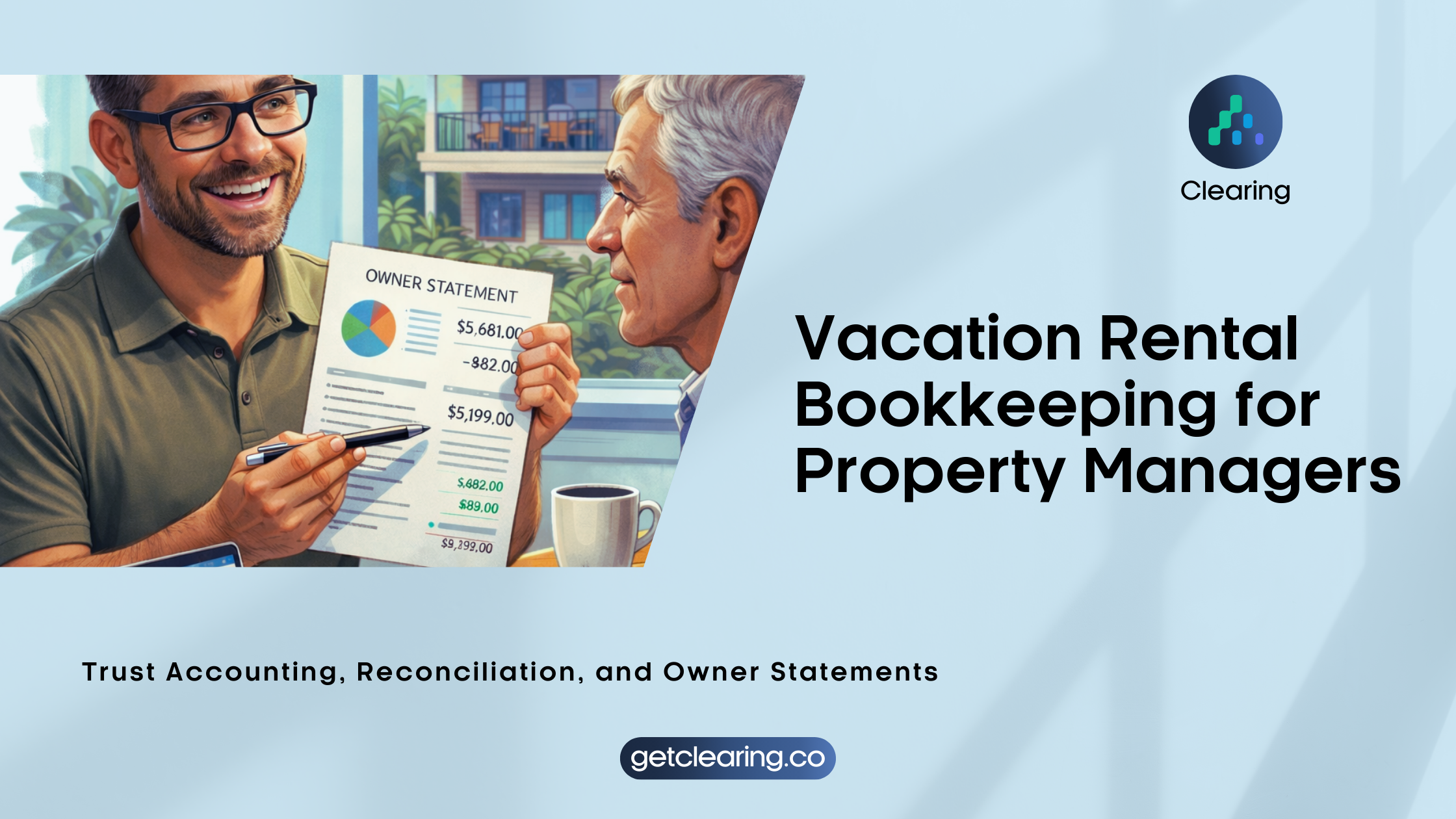



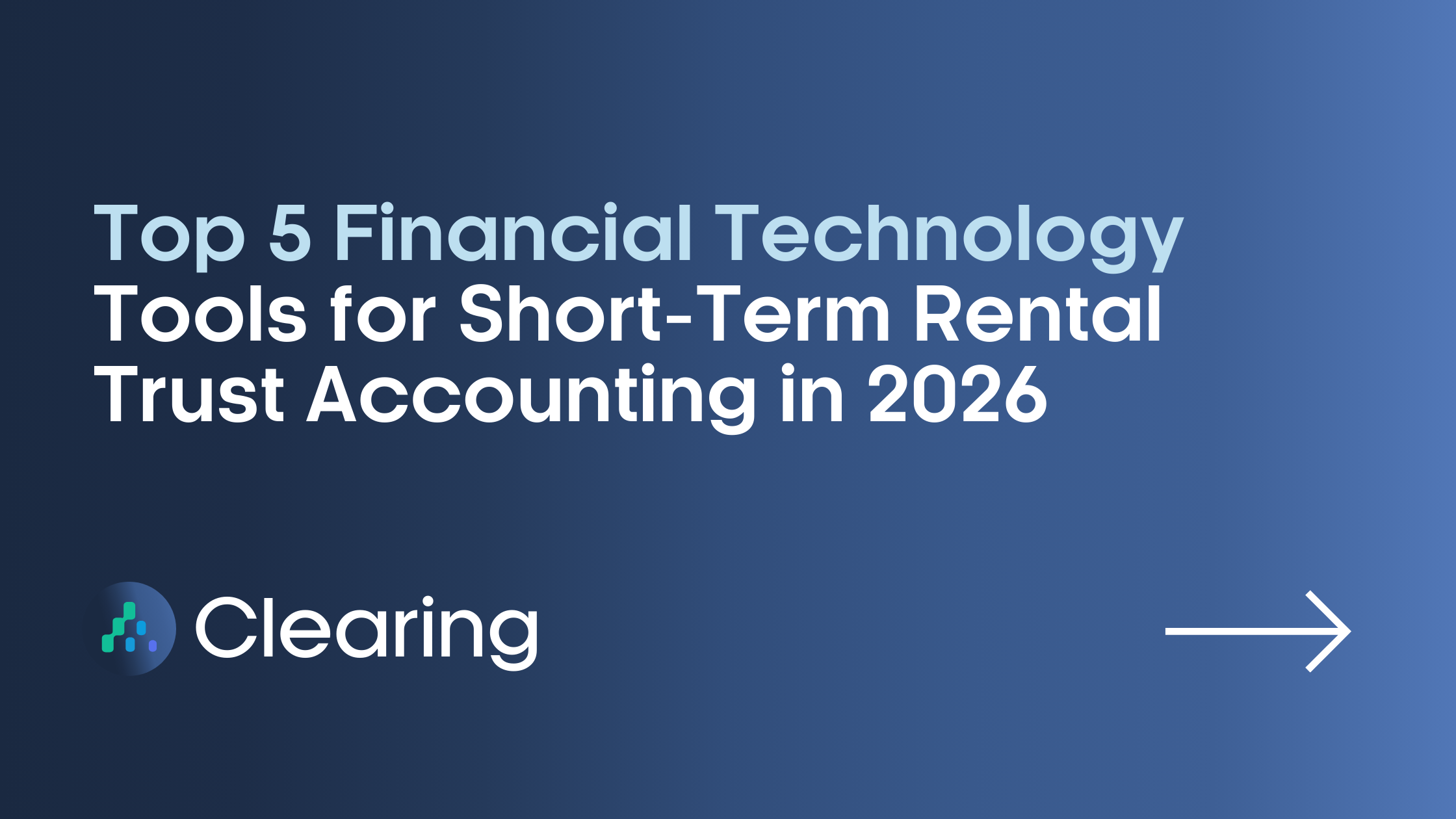

.png)
.png)
.png)
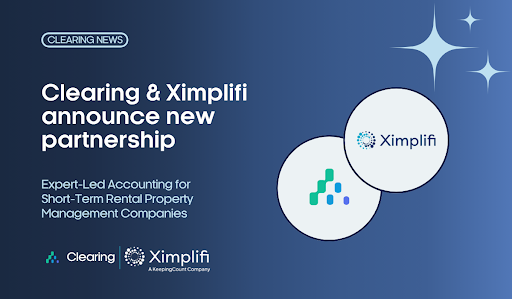
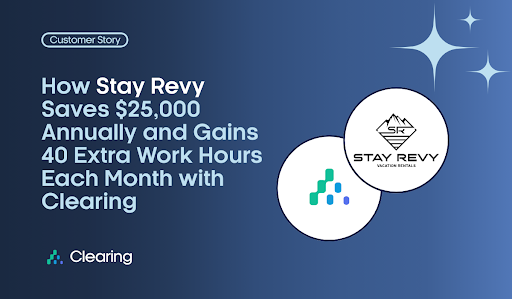
.png)
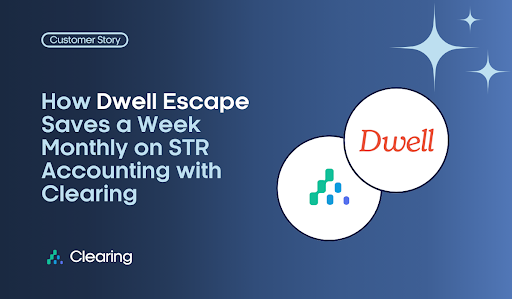
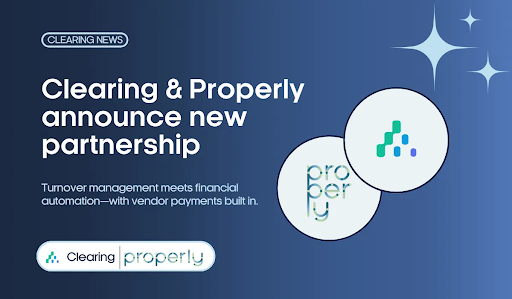
.png)
.png)
.png)
%20(1).png)
%20(1).png)
%20(1).png)
.png)
%20(2).png)
%20(1).png)
%20(1).png)
.png)

.png)
.png)
.png)
%20(1).png)
.png)
.png)
.png)
.png)
.png)
.png)
.png)
%20(1).png)
.png)
.png)
.png)
%20(1).png)
%20(1).png)
%20(1).png)








.jpg)
%20(1).png)
%20(1).png)
%20(2).png)
%20(1).png)

%20(1).png)
%20(1).png)
%20(1).png)



%20(1).png)
%20(1).png)
%20(1).png)
%20(1).png)
%20(1).png)


%20(1).png)
%20(1).png)
%20(1).png)
%20(2).png)
%20(2).png)



%20(2).png)


%20(2).png)
%20(1).png)
.png)


%20(2).png)
%20(2).png)

.jpg)
.png)
.png)
.png)


